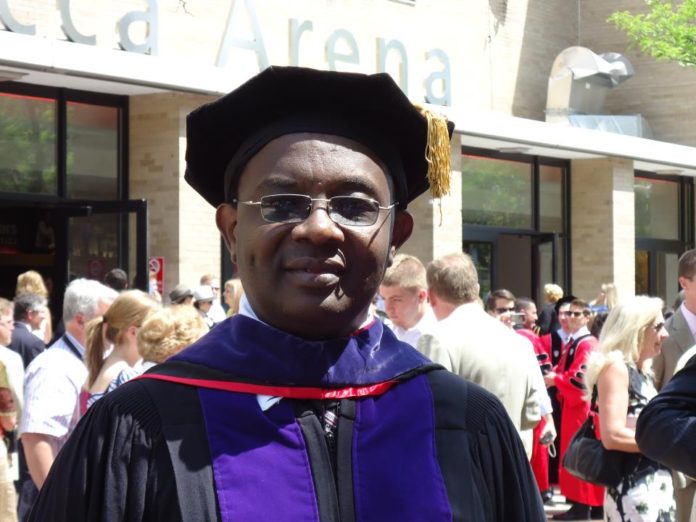Regime change in Burundi appears to be the EU and US government objective. For this to happen, the EU and the US government enlisted the help of General Paul Kagame. Kagame is the top warlord that helped some western corporations and governments to ruin DRC. After ruining DRC some multinational corporations and some western governments were able to plunder DRC’s abundant natural resources, including minerals like Tantalum, Uranium and Oil.
The multinational corporations believed that it would be a walk over for Kagame to ruin Burundi. However, much to General Kagame and his western sponsors’ surprise, Burundi is much stronger military, diplomatically and politically than Kagame and his partners-in-crime anticipated. The Uganda led Burundi talks, sponsored by the EU, are probably a tool for grabbing Burundi with a pen , after other methods hit a deadlock.
Reports that Burundi has 6% of world’s Nickel deposits, reports of existence of oil in Burundi and Burundi’s strategic position for entry into South Kivu – DRC – abundant natural resources such as Tantalum, Uranium and Oil are the major factors for the current scramble for Burundi among the superpower countries.
When the Burundian government signed Nickel mining concession with a Russia based firm, it was clear that some form of war between Russia and the US would erupt in Burundi. A proxy war was the most likely thing to happen. That’s what is happening in Burundi now.
Many attempts by some western corporations and governments to grab Burundi have, so far, failed. From creating rebel groups, armed “protesters”, riots, a coup, murdering people to trigger UN Charter Chapter 7 military intervention in Burundi to the AU proposal to send troops to Burundi have yielded very little for the proponents of regime change in Burundi.
Burundi has consolidated its security system. Kagame forces find it difficult, if not impossible, to cause havoc in Burundi, at least on a large scale to trigger UN Chapter Chapter 7 intervention. If Kagame forces do not infiltrate Burundi’s newly consolidated security system, given the regional negative perception of regime change in Burundi, the western corporations dying for Burundi’s Nickel and entry into DRC South Kivu through Burundi will have to wait for much longer before they can grab Burundi.
As the EU was pushing for AU force to Burundi, both the EU and the AU were aware that the government of Burundi would not allow the AU force into Burundi. Burundi government was probably aware of the EU-AU scheme. Both the EU and AU knew that without consent from Burundi, sending AU force to Burundi would be sanctioning war against a member state. Article 53(1) of the UN Charter explicitly forbids the AU or any regional grouping from sanctioning war against a member state. The EU and the US knew that Russia and China would not allow Chapter 7 UNSC intervention. Grabbing Burundi by violence, within Burundi, is clearly the only possible option for the western corporations eyeing Burundi.
Returning to Burundi the “rebels”, who are holed in Rwanda and some European countries, through peace talks so that they ruin Burundi’s security system as well as assassinating president Nkurunziza and the top security personnel of Burundi appears to be the major objective of the peace talks in Arusha. Shortly after the EU announced their intention to sponsor the talks, a new Burundi rebel group was announced. The following day, the new rebel group wrote to President Museveni asking him to join the talks as a rebel group. Around the same time, 1000 former M23 fighter who were in a camp in Uganda ” escaped” to an “unknown” place. During the same week there were reports of rebels fighting along the DRC-Burundi border. Selection of the parties to join the Arusha talks remained a secret between the EU, AU and president Museveni. The government of Burundi, a democratically elected government, was left out of the process to select the parties to join talks.
It emerged that a bigger group of the people that were invited to the talks was related to the ” rebels”. The government of Burundi, the opposition in government and the civil society working in Burundi were the least represented groups in the talks. The game plan was for the people who were invited to the talks to vote on every issue so that a group with more votes on each issue wins. There were two major issues: ( a) allowing AU troops into Burundi and (b) granting amnesty to the ” rebels” so that they join the talks and share power with the government. In reality, a big part of the ” rebels” is Kagame special force and Kagame M23 former fighters. Burundi government, and some regional countries, appears to have discovered the EU-AU trick, a trick Kagame and Museveni used to entrench their M23 fighters into DRC security system using the infamous Kampala DRC peace talks.
If the EU, the US, the AU and other actors were acting in good faith on the crisis in Burundi, honesty, they would not have remained silent about Rwanda’s acts of aggression on Burundi. Acts of Aggression are a crime against international peace. The UN Charter, the ICC and the AU Constitutive Act consider Aggression a crime and the ICC has jurisdiction over Aggression. Ironically, although the international community is aware of the horrific crimes Kagame committed in DRC, neither the UN nor any regional organization has come out to condemned Kagame’s obvious acts of aggression in Burundi.
Dr Charles Kambanda





























































